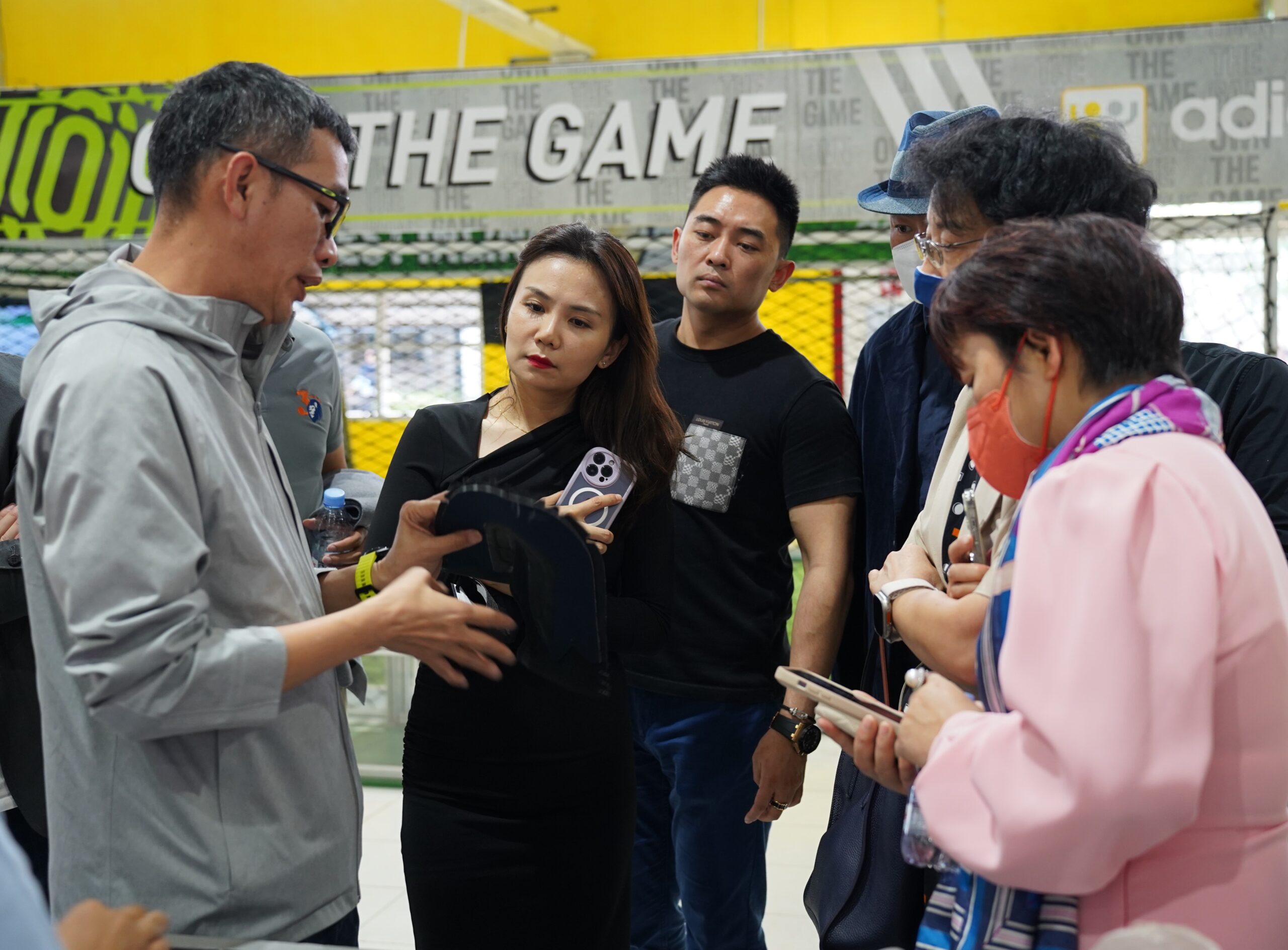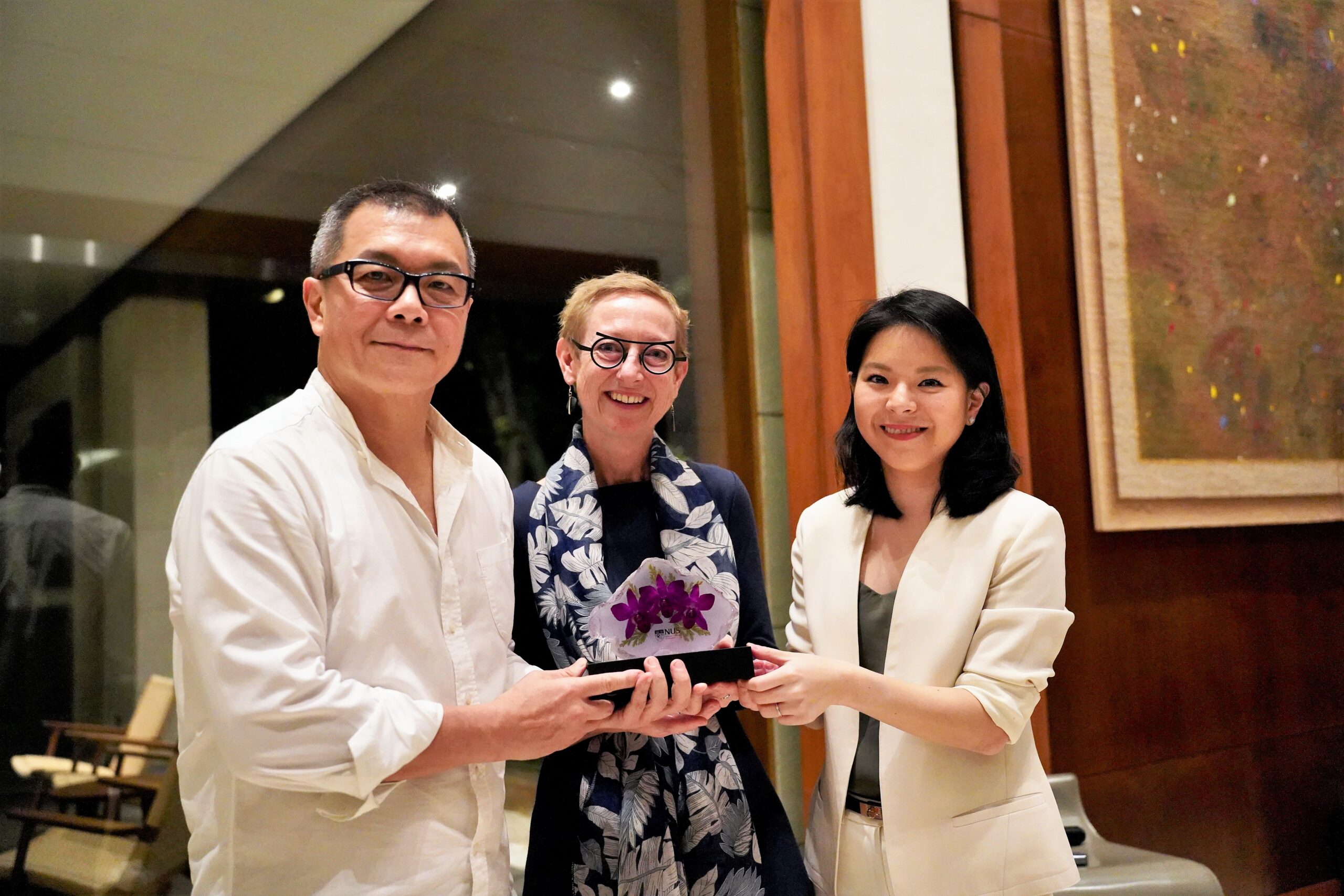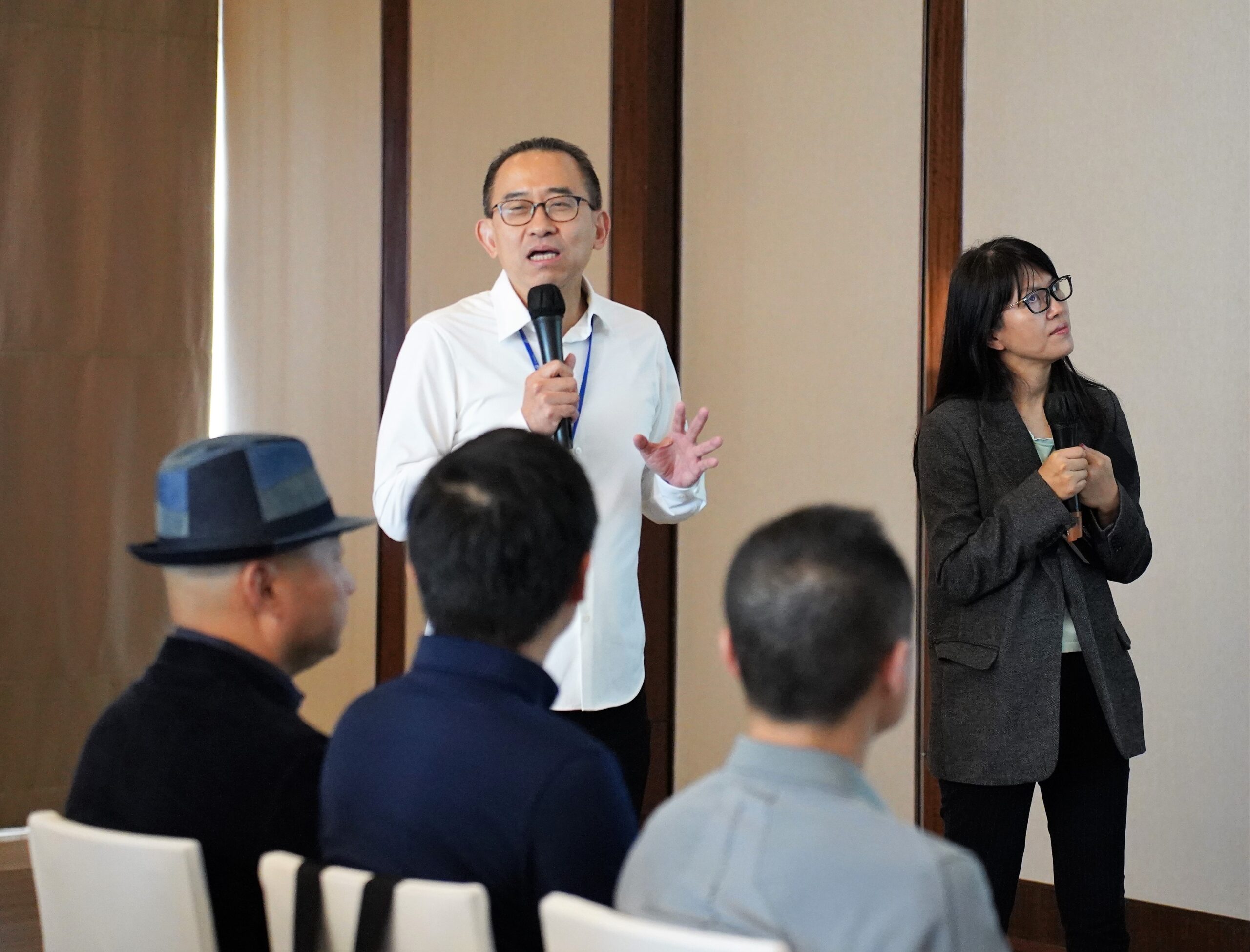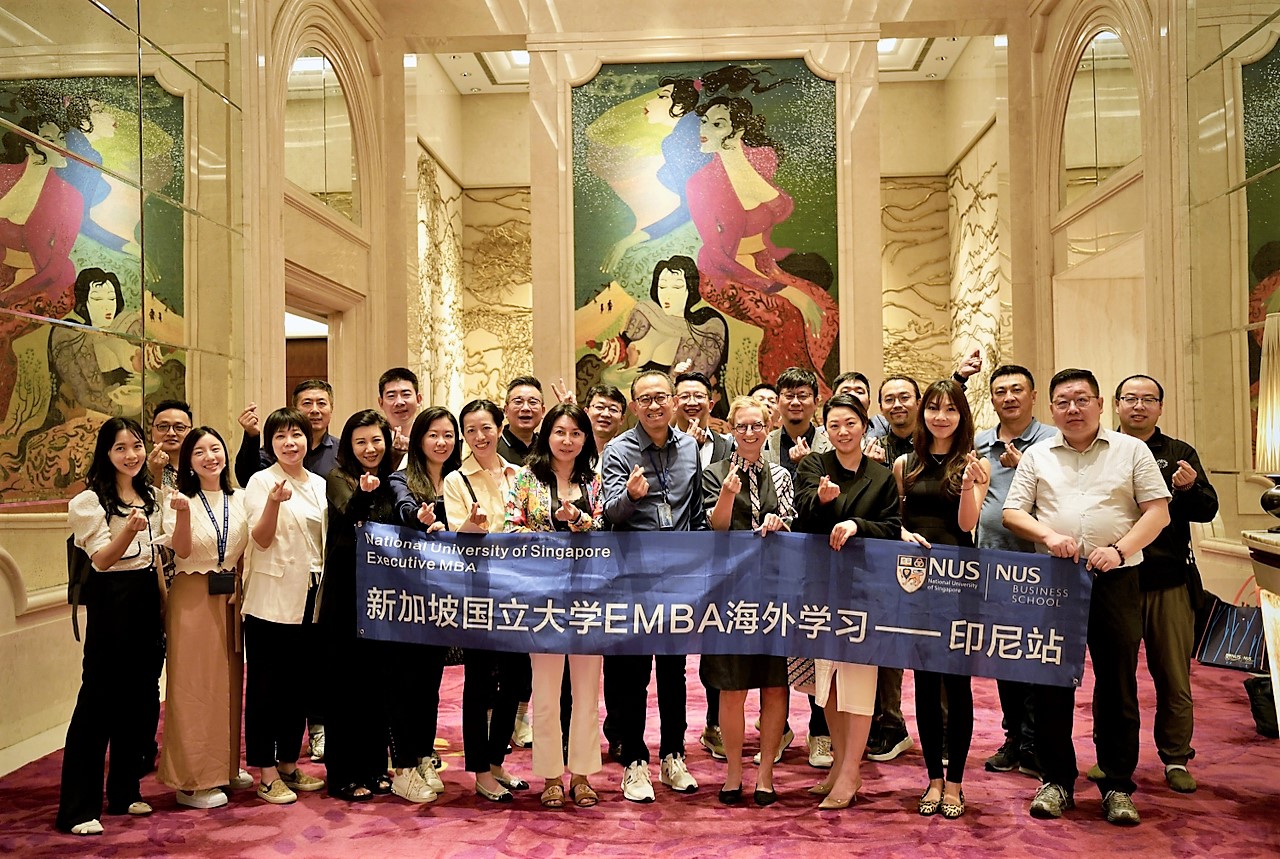A tour of the bustling city, insightful interviews with business leaders and an exchange of global perspectives in taking their business forward.
The NUS Executive MBA (Chinese) students in the Jakarta study trip in March experienced these and more.
“Overseas study tours have always been an important part of our programme,” said Professor Fu Qiang, Academic Director of the programme. “They not only broaden horizons but also allow students to get up-close and personal with the local culture, society, economy and environment, leading to a deeper understanding and appreciation of these aspects.”
Indonesia was chosen as it is one of the emerging hotspots in the global capital markets. Associate Professor Marleen Dieleman, Department of Strategy and Policy, noted Indonesia’s emerging technology, commodities, and consumer goods industries. She said, “Indonesia is a very large country with young people, and this is especially attractive for Chinese entrepreneurs who wish to invest.”
A family business expert, Associate Professor Dieleman also led students in unlocking the secret of successful Asian family businesses.
Students from Intake 29 (left) and Intake 30 of the NUS EMBA (Chinese) programme embarked on a learning trip to Jakarta.
The students met their senior, Hendrik Sasmito, from the programme’s inaugural intake and now the second-generation leader of footwear manufacturer PT Panarub Industry. This firm employs 75,000 workers and produces sports shoes for brands such as Adidas and Nike.

A tour of footwear manufacturer PT Panarub Industry.
Hendrik said that family values played a major part in the business. They believed in doing good and place focus on corporate social responsibility and environmental protection.
His daughter, Evelyn Sasmito, brought the firm to new territories by transforming and diversifying operations.
They believed that finding professional talent to manage the business and playing to their strengths as a team were key to standing out in a competitive market.

From left: Hendrik Sasmito, Associate Professor Marleen Dieleman and Evelyn Sasmito.
Another well-known family business is the conglomerate Ciputra Group, one of Indonesia’s largest real estate developers.
Harum Hajadi, managing director of the Ciputra Group, told the students how the firm approached crises and invested in the future, such as establishing Ciputra University, which promotes entrepreneurial education. In addition, they formulated a constitution which defines the family business’ philosophy, objectives, and operation methods to ensure its long-term development.

Harum Hajadi (in white), managing director of the Ciputra Group, shared the firm's business philosophy.
It was an eye-opening trip for NUS EMBA (Chinese) student, Wilson Lu (Intake 30). He used to think that a family business environment was not conducive to attracting top talents, but the study tour let him discover many aspects of family businesses worth emulating.
“Ultimately, what is important is not whether it is a family business, but rather how you manage your family and your business,” said Wilson.
NUS EMBA (Chinese), a gateway to the world
Helping students gain global perspectives is a key focus of the NUS EMBA (Chinese) programme. It integrates Eastern and Western management philosophies and helps business leaders gain new inspiration for their business operations.
As Professor Fu Qiang said, “Our programme is like a gateway to the world. The world is vast, and we hope to grow and explore with our students, inspiring one another each step of the way.”
Watch the video of the Jakarta immersive segment here.








